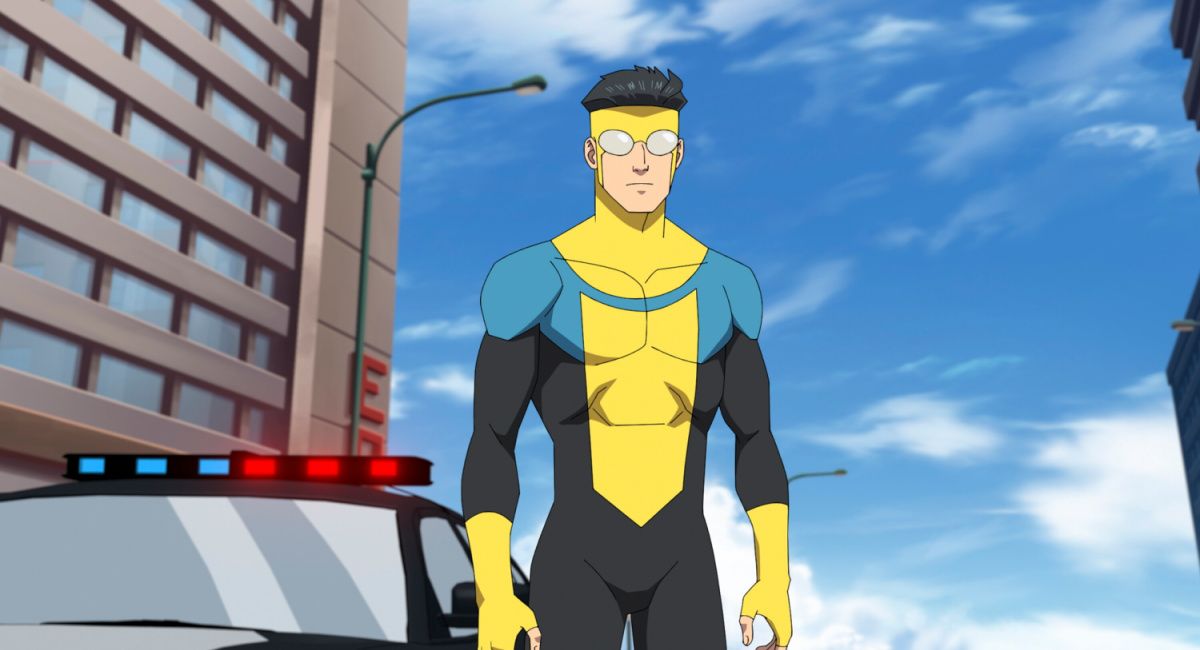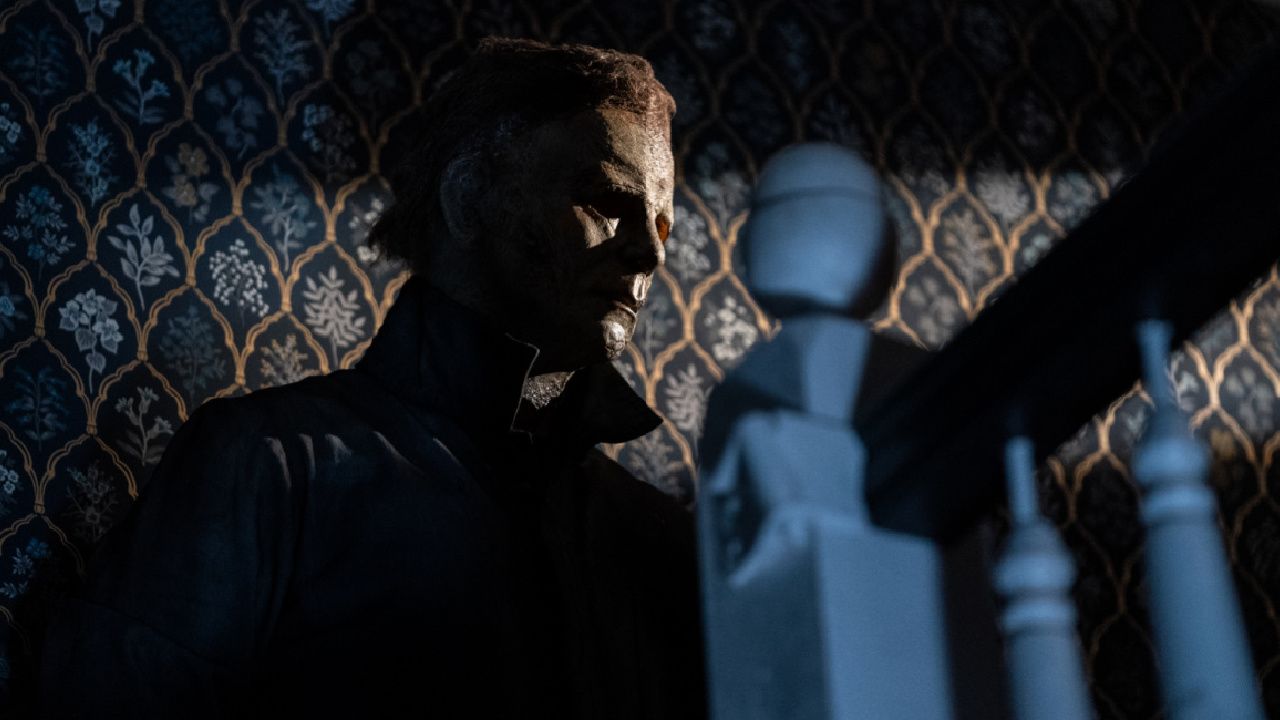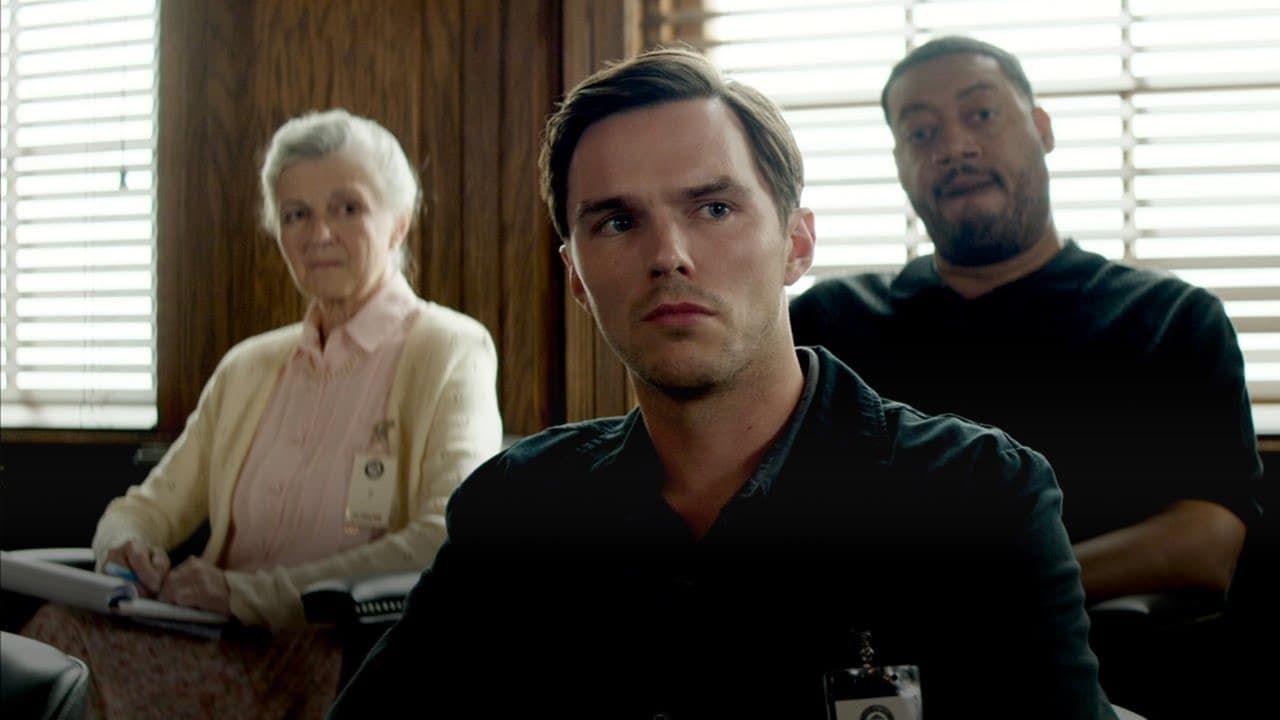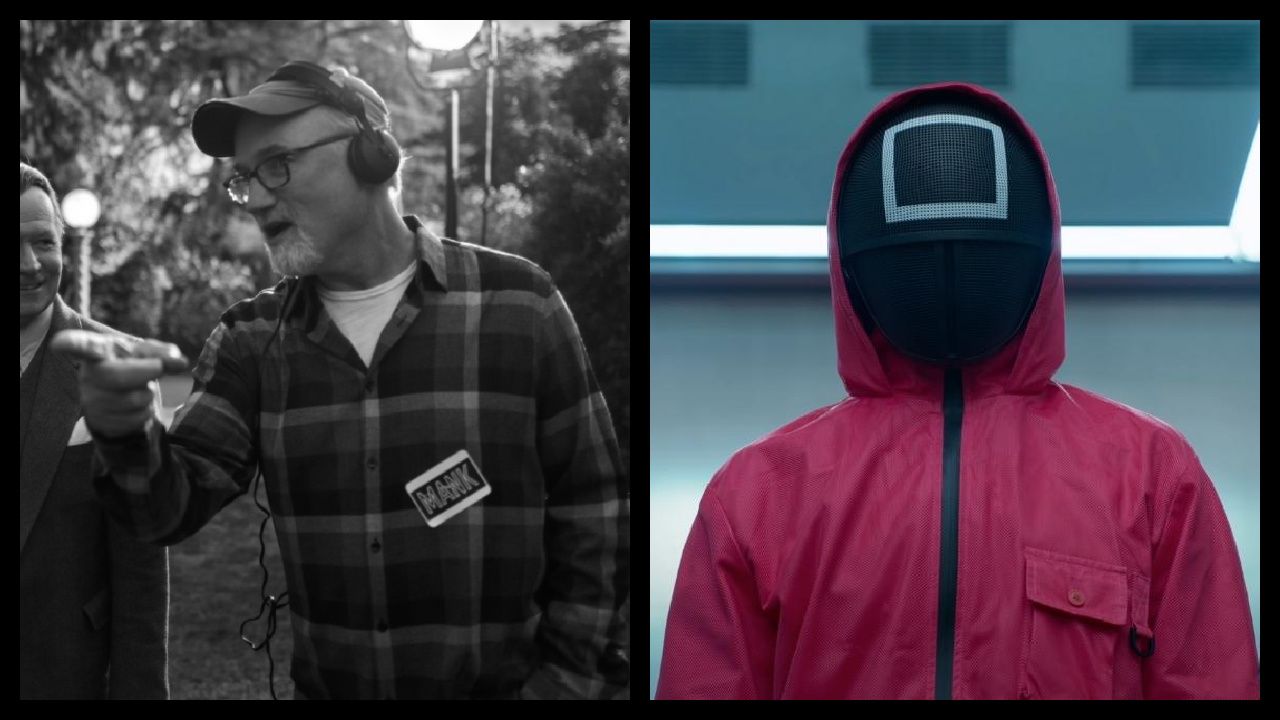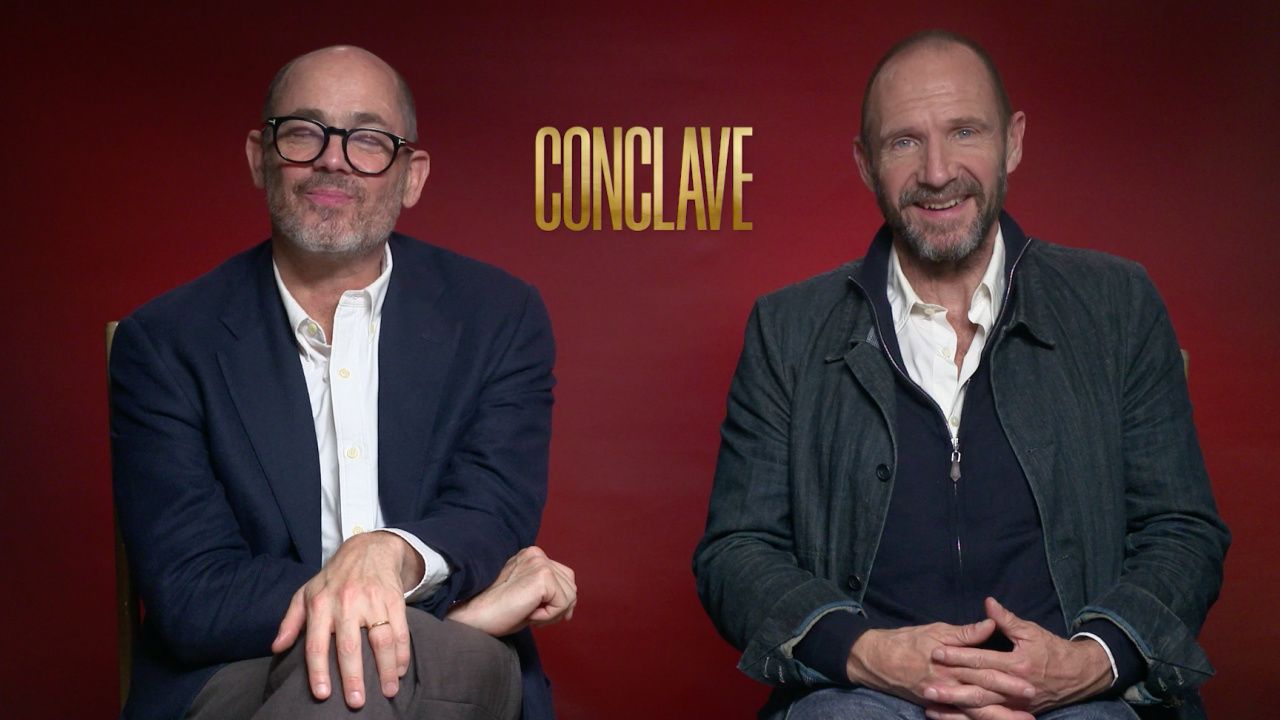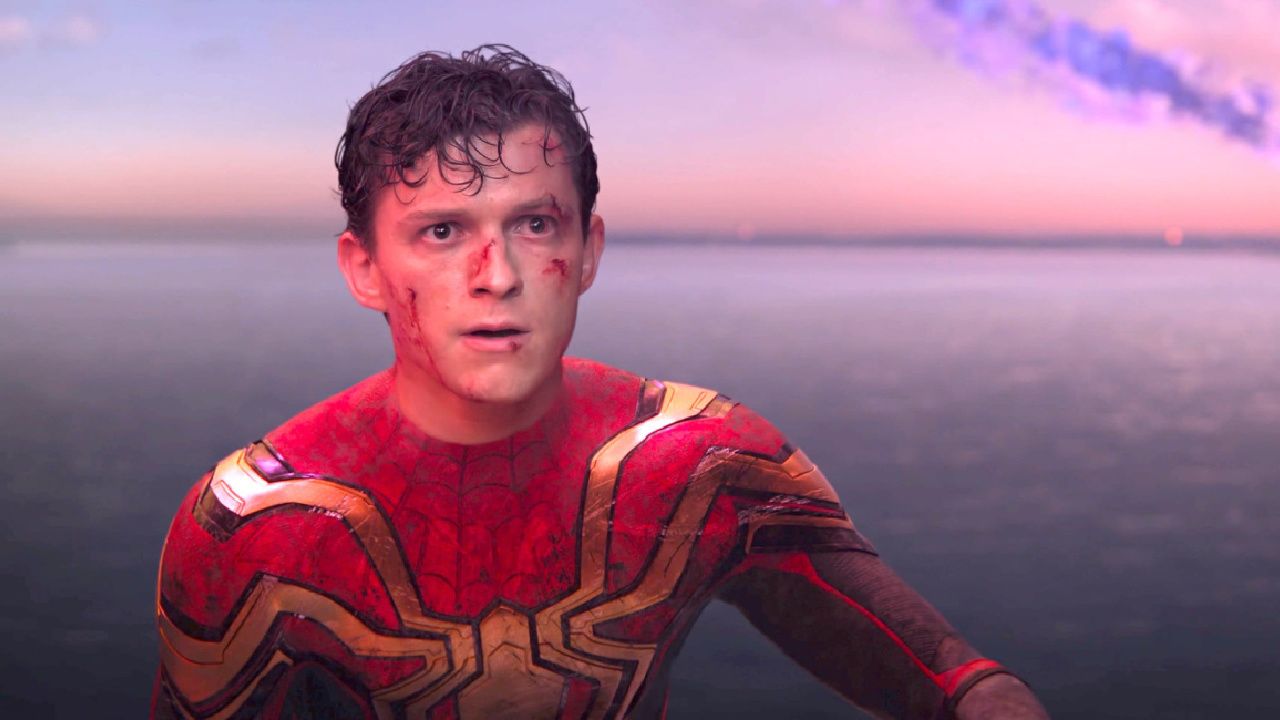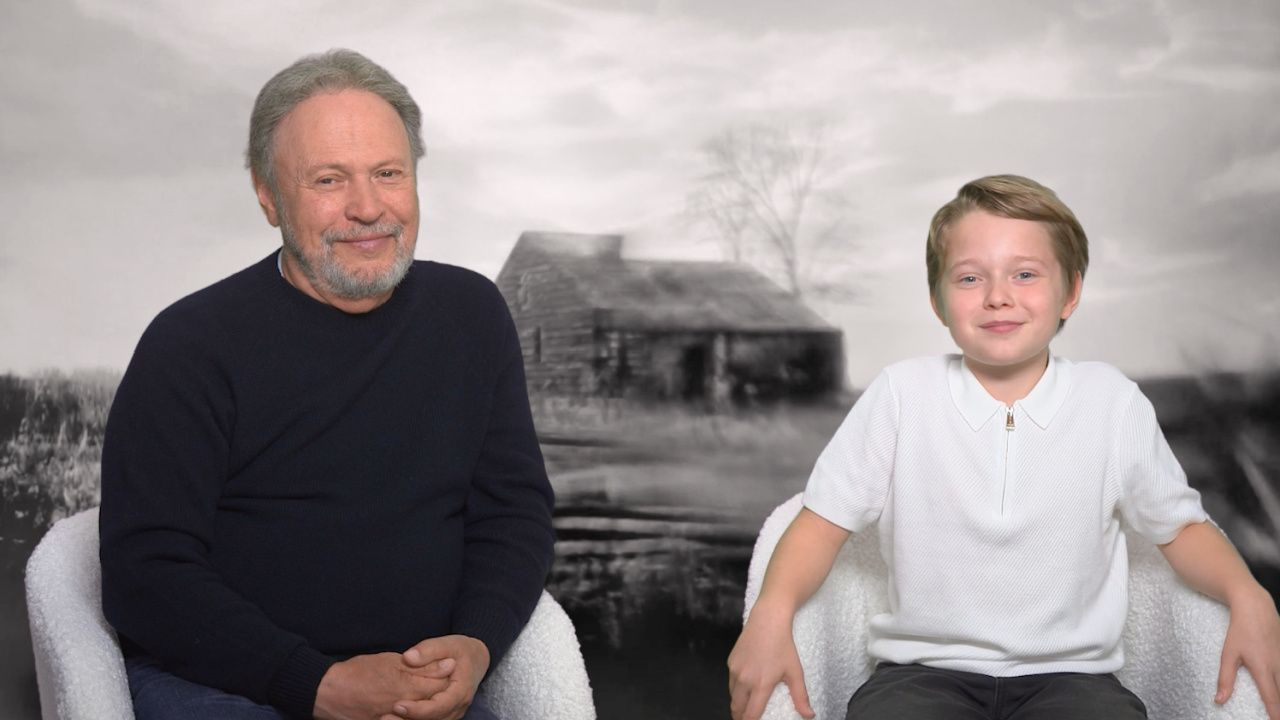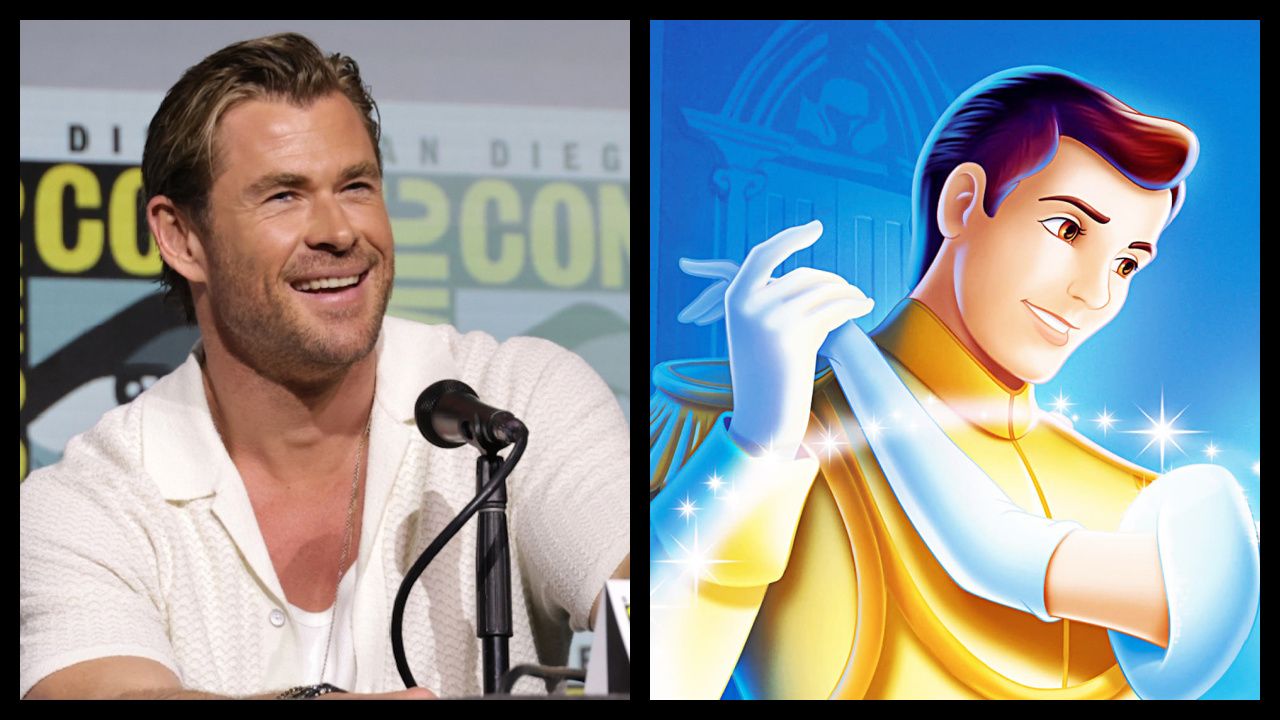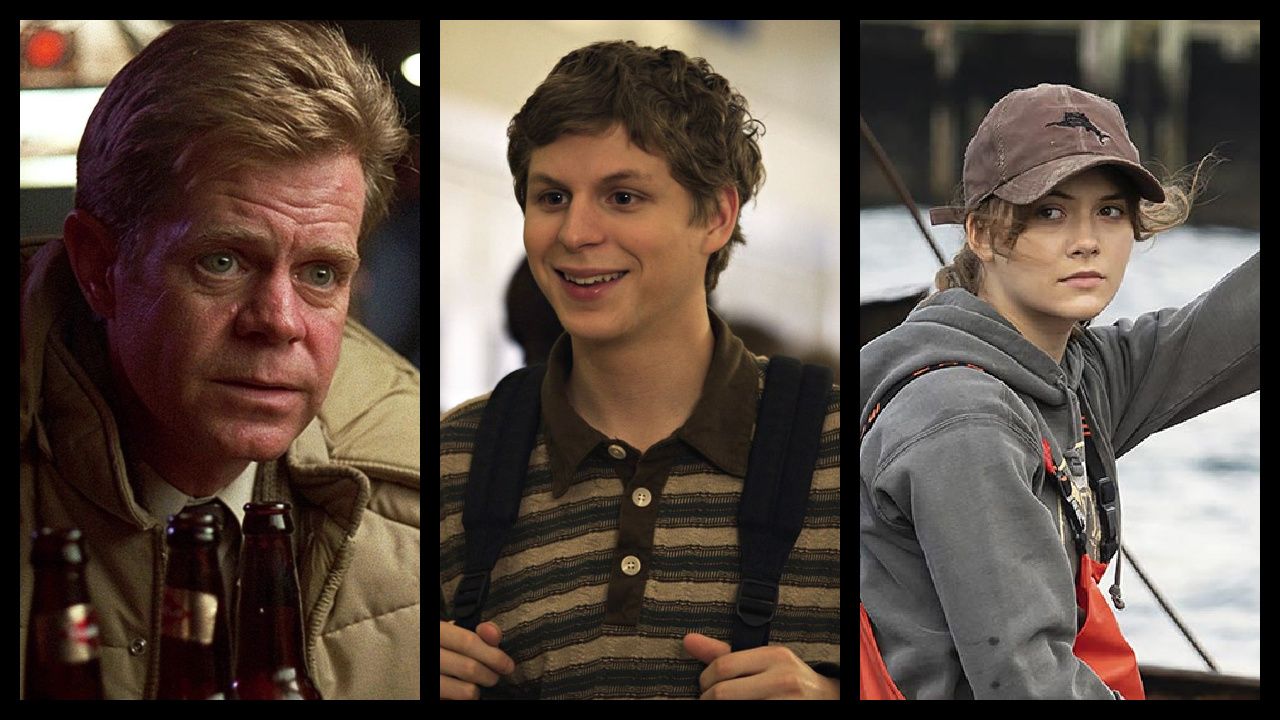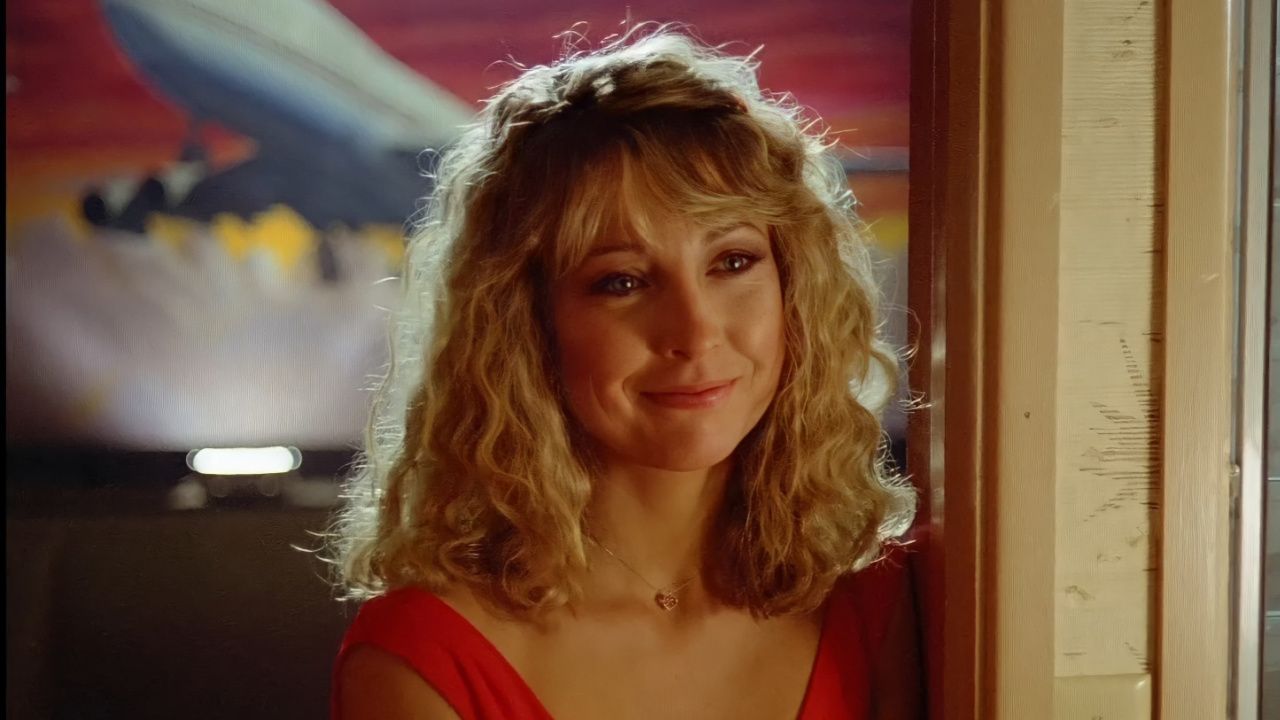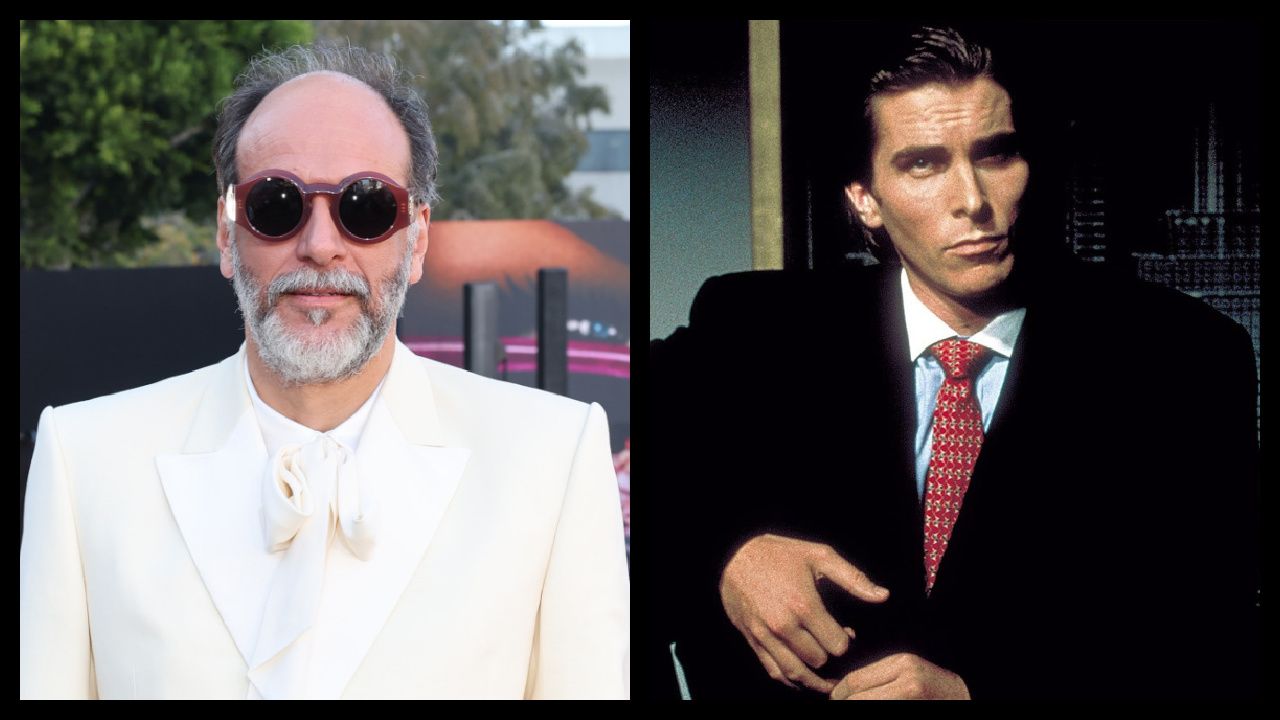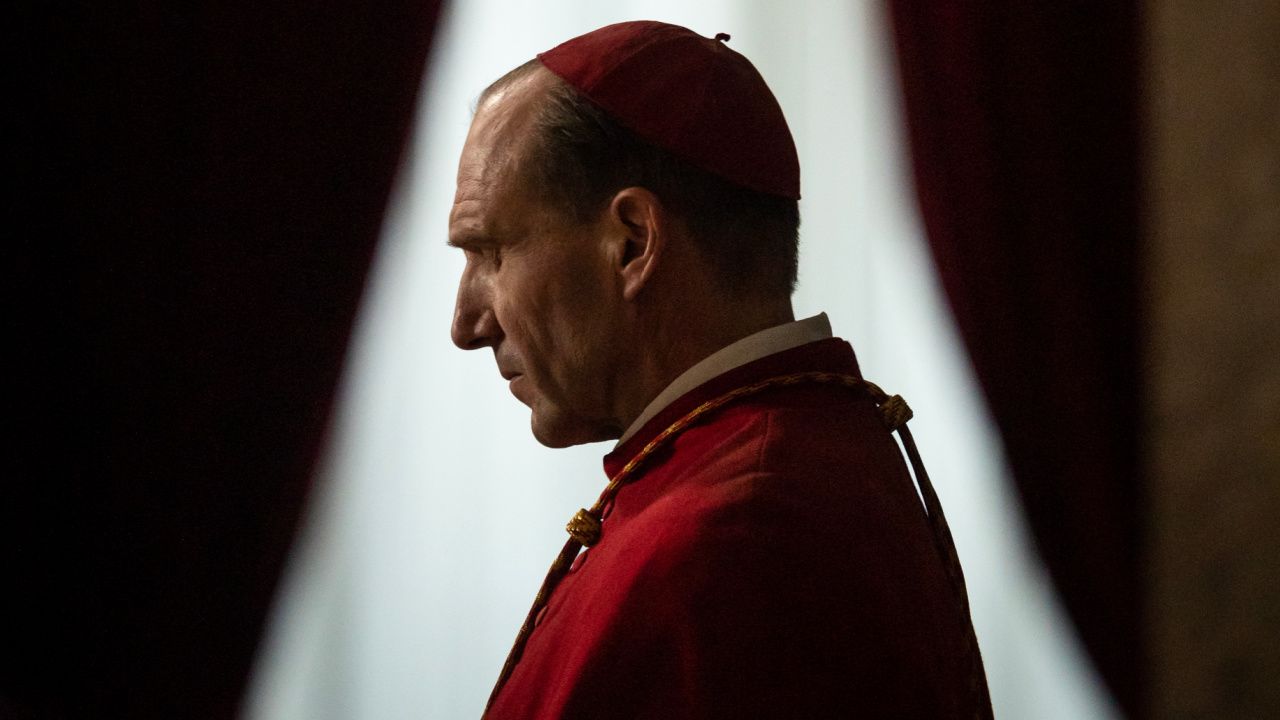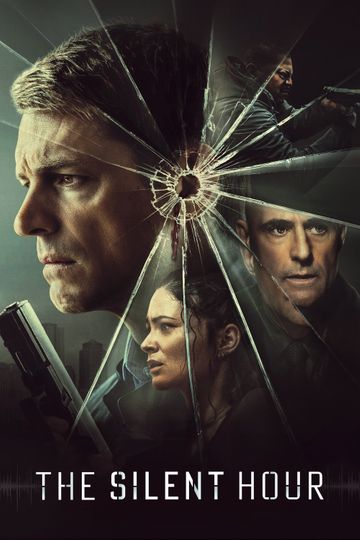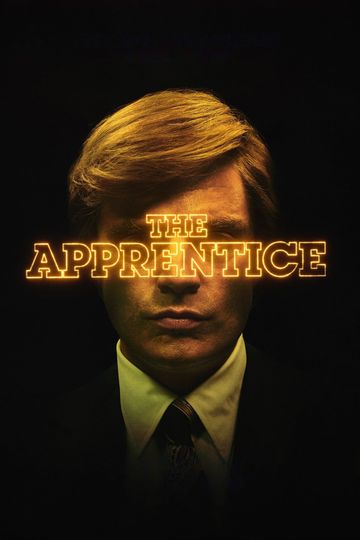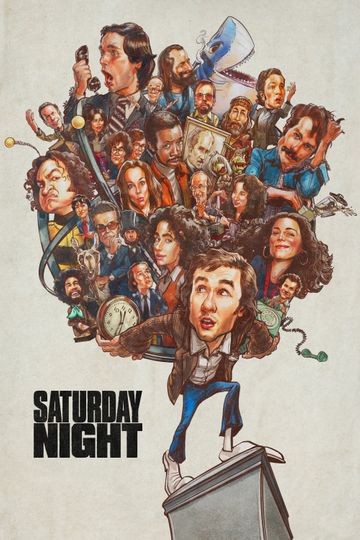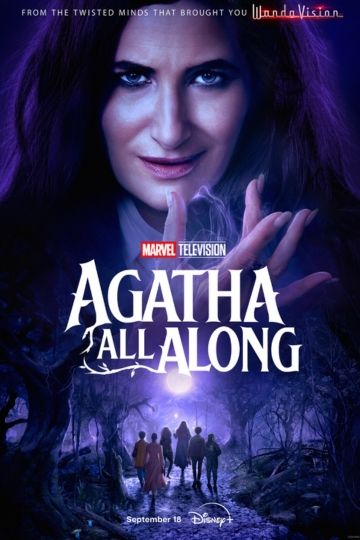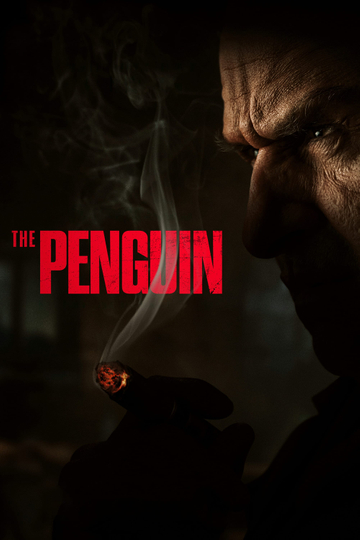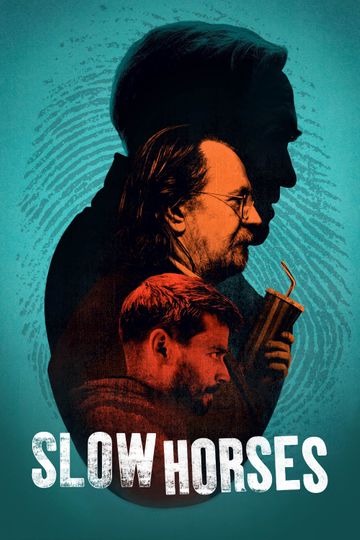'Better Call Saul's Rhea Seehorn Talks New Sci-fi Comedy 'Linoleum'
Moviefone speaks with Rhea Seehorn about 'Linoleum.' "I really loved the characters and these big questions it was asking," she said about the screenplay.
Opening in select theaters on February 24th is the new sci-fi comedy ‘Linoleum’ from writer and director Colin West.
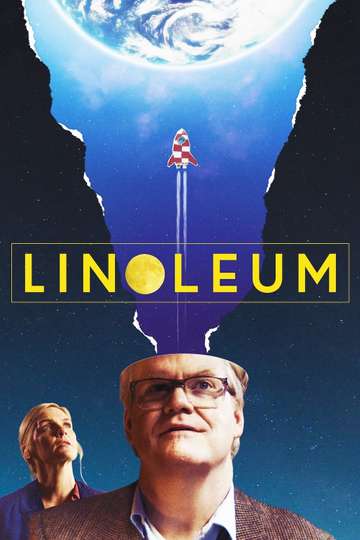
What is the plot of ‘'Linoleum?’
'Linoleum' stars Jim Gaffigan as Cameron Edwin, a depressed man living a rather boring life in a small Ohio town with his wife Erin (Rhea Seehorn) and daughter Nora (Katelyn Nacon). Cameron hosts a children's science television show in a small market that runs at midnight, but he has always wanted to be an astronaut and grew up in the shadow of his more successful scientist father.
When part of a rocket falls from orbit and crashes into his backyard, he decides to fulfill his unrealized dream and rebuild it into his own rocket. However, his wife, who has started divorce proceedings, thinks he is having a midlife crisis. As some other surreal events occur in his life, Cameron not only feels his mission is justified but he begins to question the nature of reality itself.
Who is in the cast of ‘Linoleum?’
‘Linoleum’ stars Jim Gaffigan (‘Troop Zero’) as Cameron Edwin and Kent Armstrong, Rhea Seehorn (‘Better Call Saul’) as Erin Edwin, Katelyn Nacon (‘The Walking Dead’) as Nora Edwin, Gabriel Rush ('The Kitchen') as Marc, Amy Hargreaves (‘Michael Clayton’) as Linda, Michael Ian Black (‘Wet Hot American Summer’) as Tony, and Tony Shalhoub (‘Men in Black’) as Dr. Alvin.
Moviefone recently had the pleasure of speaking with Rhea Seehorn about her work on ‘Linoleum,’ how she got involved with the project, the complex script, her character, working with Jim Gaffigan, and looking back at her time on ‘Better Call Saul.’
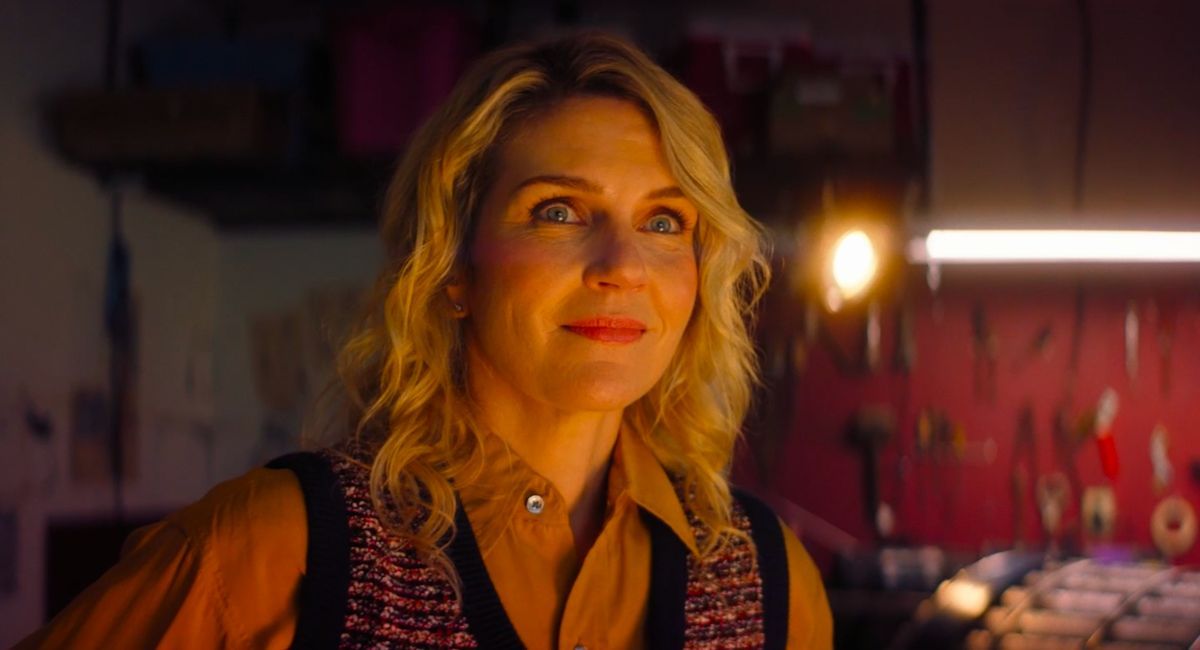
Rhea Seehorn as Erin Edwin in Colin West's 'Linoleum.'
You can read the full interview below or click on the video player above to watch our interviews with Seehorn and Jim Gaffigan.
Moviefone: To begin with, how did you get involved in the project and what was your first reaction to the screenplay?
Rhea Seehorn: Colin sent the script through my reps to me, I read it and I loved it. The script had notations in it, or I guess they're called stage directions or actions, that made me understand where it was going in a way that you wouldn't if you weren't watching it. So it wasn't about a surprise element, but it was quite the jigsaw puzzle for me to think about as I was reading it. Then I really loved the characters and I really loved these big questions it was asking. But it was Colin's letter that he sent along with it, explaining that this was born out of his experience, going through his grandfather's dementia. He had these huge philosophical questions that ultimately had hopeful answers.
There was something very beautiful about the way he was approaching it and these large questions he wanted to ask with this quite allegorical magical realism tale. Then when I got on the phone with him, I was definitely sold. He's a gifted filmmaker and artist. and just sort of very humbly with a light touch, goes about asking very large questions and he is not afraid to not supply the answers.
MF: There is a big reveal at the end of the film. As an actress, how did you approach playing this character without playing the reveal?
RS: Yeah, it was a lot of mental gymnastics. In every project, you have all the different techniques and classes and craft things that I've learned and it's a hodgepodge and you're taking out the pieces that are appropriate. It's just how I work for that film. Now, a lot of them stay the same, but some change. In this film, it was really necessary for me to wrap my head around, usually with Colin, Jim and sometimes Caitlin, what is actually the truth if I, Rhea, watched this film and decided to write it again, knowing what I know, what is the actual truth of the scene where I am giving my daughter advice is a good example.
Now some people might say, "Forget it, I'm just going to play the scene." But because I already knew, it was important for me to understand where it fits logically as best I could and then put that aside and talk about what is the scene if it was just simply me giving my advice to my daughter. Because ultimately my job is to be truthful in the scene. It's not my job to tell the whole story. Jim and I approached our scenes the same. Because as we find out, Erin is ultimately sort of the narrator by necessity of what you're watching, even when you don't realize it.
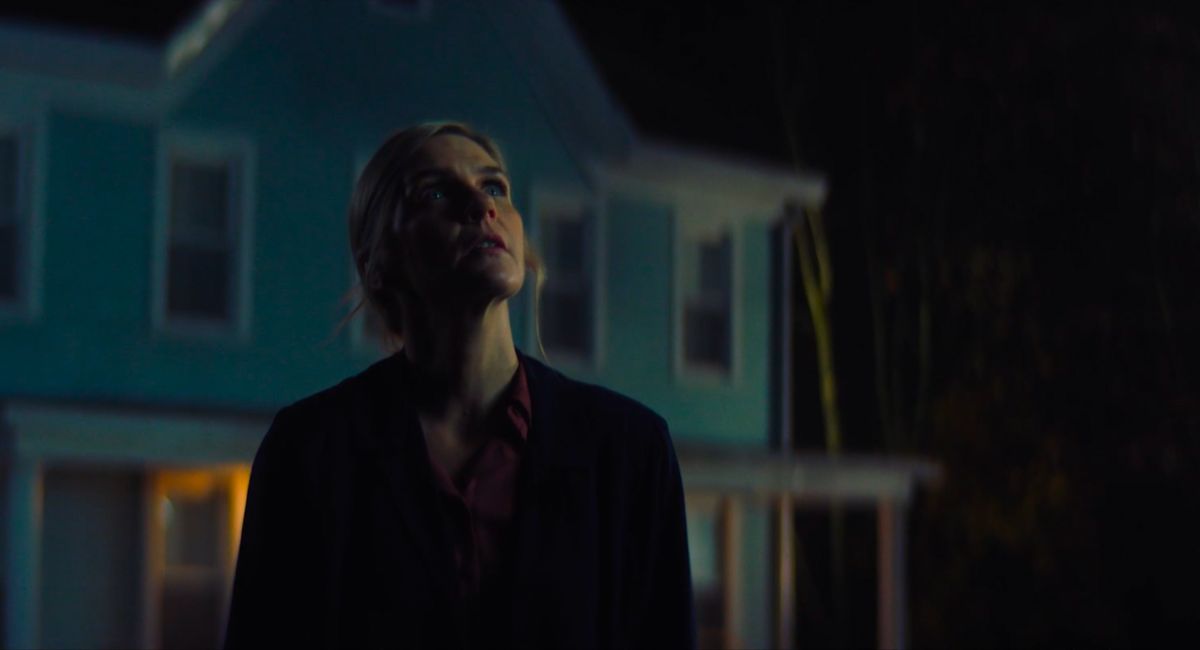
Rhea Seehorn as Erin Edwin in Colin West's 'Linoleum.'
Related Article: Vince Gilligan Plans New Show After ‘Better Call Saul’
MF: Erin says that she wanted to do “something fantastic” with her life. Can you talk about what she means by that, and could you relate to that idea personally yourself?
RS: This is one of many of the themes and big questions that Colin was asking, which is why I think having this little bit of sci-fi magical realism is a brilliant way to go about it. That line, "I wanted to do something fantastic" is repeated by multiple characters, used in different ways, said in inspirational ways and also said in mocking ways, that it's somehow petty and childish. I think for Erin, she had big dreams too and, through no fault of her own, got assigned the pragmatic bill-paying role. She’s the only one being responsible and she didn't ask for this job, and it's a really heavy sack to carry around. She's asking to not be alone in that. "Can we share this burden so that we can both be dreamers?"
But Erin has lost touch with her spark and being fascinated by science and space has diminished at the same time that the spark has diminished in their marriage. I think a lot of people that I've spoken to say that part resonates with them, when you're just too exhausted to be the best you in a relationship and in life. But I think ultimately, there's this love story at the core of the whole thing where, from my point of view, ultimately Erin is trying to let her husband know that loving someone unconditionally and being in a partnership is doing something fantastic. They have done something fantastic, and that sort of frees her to start being a dreamer again, and to let it go, which dovetails into the second part of your question.
You can obsessively focus on, "Oh, I'll finally believe in myself and think that I have done something fantastic when it's this thing and when it's that thing." You keep moving that goalpost for yourself. When really, getting to do what you love for a living at all is such a small percentage of the population period. What a gift to be afforded that luxury, because not everyone gets to do something they love. That is fantastic. Now at this stage in my life, having a fiancé and two boys that are my stepsons, it's like you really do start to take stock. I think Erin, when you first see her, if she looks around her, there's a whole lot that's fantastic.
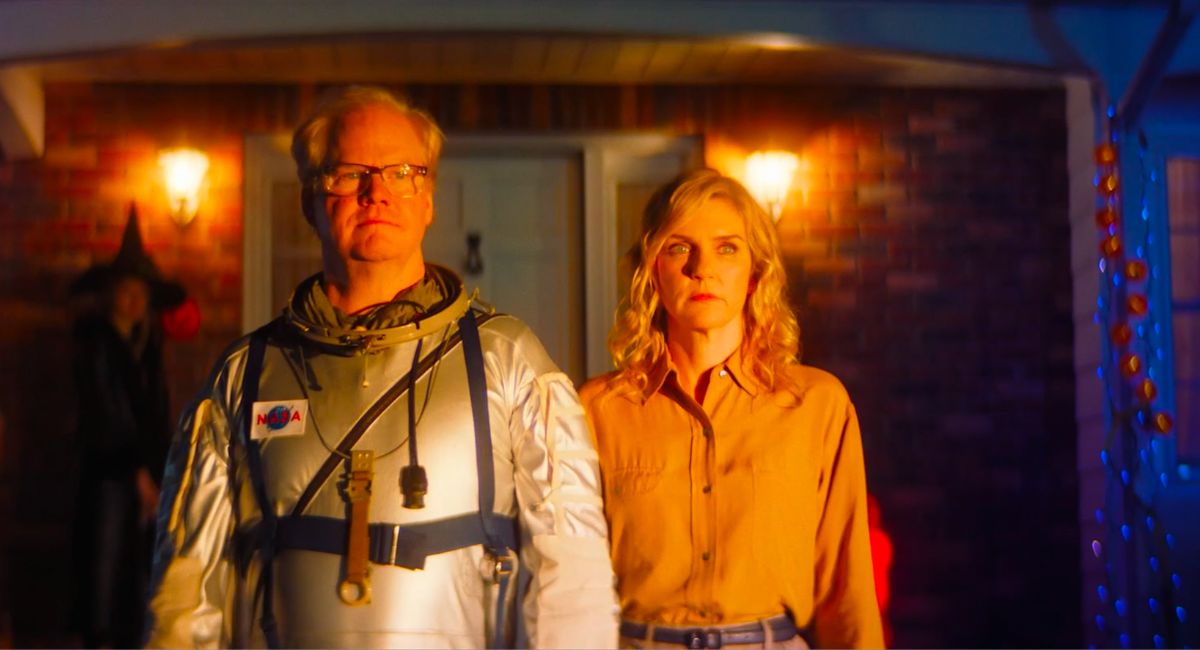
(L to R) Jim Gaffigan as Cameron Edwin and Rhea Seehorn as Erin Edwin in Colin West's 'Linoleum.'
MF: Can you talk about Erin and Cameron’s marriage, and working on that relationship with Jim Gaffigan?
RS: I loved working with Jim. He's so great. I'm so glad that so many people will see the breadth of his work because I knew him as a stand-up, although he told me that he started in dramatic roles. That's what he thought was going to be in his career before he ever was a stand-up. He's such a gifted comedian. But you know what? So is Bob Odenkirk. So is Michael McKean. I think comedians are broken people and that's why they can do drama so well. I was known as a sitcom actress before I got ‘Better Call Saul.’ It's a funny thing, but Jim is incredibly deft at really nuanced attacks on a scene. We had such a good time finding that because the relationship had to be real.
It doesn't matter if we're standing in the middle of a tornado or whatever, we knew these are two people that love each other. Depending on which scene you're looking at, one of them has fallen in the ditch and the other one is trying to pull them up. No matter how lost or how bad the miscommunication is, they need to want something from each other at all times in any room that they're in together. Even when you're seeing them not speaking, like in that wonderful bedroom scene, it doesn't mean they don't want something. Erin I think is just desperately saying, "Can you please come back to me because I am doing this alone and I can't do it anymore." That has a double meaning by the time you get to the end, realizing what she's been through and why she does feel alone.
MF: Finally, now that ‘Better Call Saul’ is over, what was that experience like for you as an actress to be a part of?
RS: It's not possible to overstate what a gift that show was to me, the family of people that are very close friends of mine, the gift of that writing and direction, and the gift of having people like Peter Gould, Tom Schnauz, Michelle MacLaren, my entire cast, and Vince Gilligan.
The experience was doing something in your career where you're like, "Wow, am I capable of that? Because that looks really hard, but I want to be that good." Then you have all of the people that you thought were the best at their jobs saying, "No, you can do it. You are capable of this and you're going to soar.” That is what they gave me every day on the set. You go home a better actor every single day and it's joyful.
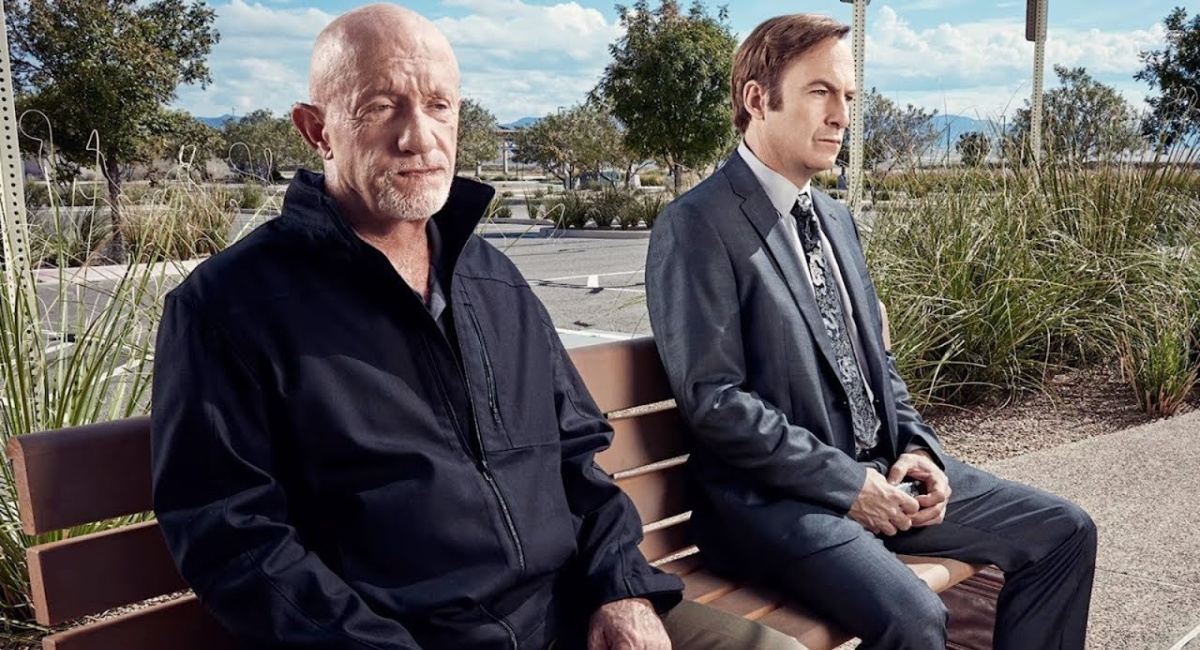
(L to R) Jonathan Banks as Mike Ehrmantraut and Bob Odenkirk as Jimmy McGill / Saul Goodman / Gene Takavic in AMC's 'Better Call Saul.'
Other Movies Similar to ‘Linoleum:’
- 'The Truman Show' (1998)
- ‘American Beauty' (1999)
- ‘The Astronaut Farmer' (2006)
- ‘Lucy in the Sky' (2019)
- 'Proxima' (2020)
Buy Tickets: 'Linoleum' Movie Showtimes
Buy Rhea Seehorn Movies on Amazon
'Linoleum' is produced by Brain Scratch Productions, Storm City Films, and Sub_Sequential Pictures, and is scheduled for release on February 24th.












